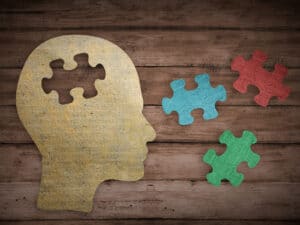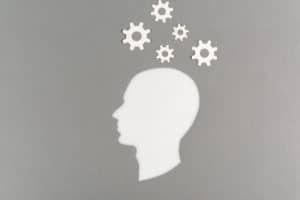Memory is the ability to remember places, objects, people, and events. It contributes in this sense to learning, but also to shaping our behavior, through experience. In this article, we will review the different types of memory and the current knowledge of neuroscience in this area. We will see how our memories are formed and how our brain processes the information.
Definition Of Human Memory.
Memory is composed of our memories and information stored in the memory areas of our brain. It also happens that elements encountered fall into oblivion. The human memory is dynamic, we can develop it in case of problems.
Human Memory: Principles And Functioning.
About 10 million signals from the sensory organs reach our brain every second, but not all of them are worth saving and storing for later. This is why only a selection of the signals is retained in memory.
Understanding The Brain And Memory.
Different methods are used by researchers to understand the anatomical, cellular and biochemical basis of memory. Psychological tests and the study of failure symptoms, for example, caused by a tumor or after a stroke, shed light on the different memory functions.
Medical imaging techniques, such as positron emission tomography (PET), allow us to monitor brain activity. Important information is also provided by animal experiments. Finally, computer simulations performed with artificial neural networks have recently appeared.
Nevertheless, understanding anatomy is not everything, as we will see below. This is why understanding the foundations of learning, memory, and recall requires research of an interdisciplinary nature.
Therefore, neuroscience and psychology must work hand in hand. Psychological and behavioral tests are often the only way to establish the presence of complex achievements such as human memory is capable of.
How Memory Works.
The brain first distinguishes between known elements and those that are unknown, and therefore new. For the former, an update of the data is possible, if the differences brought by the recent impressions are important. The signals that are new will be memorized after they have been processed if the brain judges them to be of interest. Our brain decides whether impressions are worth retaining so that they can be remembered later.
In contrast to computer memory, which is clearly localized and located on, for example, DDR strips, human memory is not restricted to a particular area of the brain. Research has shown that there is no brain structure specifically dedicated to memory and memory learning.
Instead, the seat of memory is a network of nerve cells, which extends over various areas of the brain. Different brain areas are therefore active simultaneously.
Brain Areas Involved In Human Memory.
Procedural memory carries out its main processes in the cerebellar structures of the brain. The amygdala, or rather the amygdalae, since there are two of them, are located near the hippocampus, in the frontal part of the temporal lobe. This part of the brain is involved in semantic memory. It also has the function of storing memories related to emotions. The hippocampus, on the other hand, is mainly involved in the formation of memories related to episodic content.
The frontal and temporal regions of the right hemisphere of the brain, which can be distinguished on this diagram, are responsible for processing episodic memory, while the same regions of the left hemisphere are responsible for processing semantic memory content.
The hippocampus, located in the anterior medial temporal lobe, serves largely as a buffer for the transfer of data into long-term memory so that new information can be stored.
Types Of Memory.
Studies on human memory have contributed to the establishment by scientists of a fine typology.
In concrete terms, human memory is made up of five interconnected systems:
- Working or Short-Term Memory: this is the memory dedicated to the present. It allows us to retain information over a short period of time, as long as this data is necessary to carry out a task in progress.
- Procedural Memory: allows us to perform tasks automatically, which frees our brain for other tasks.
- Perceptual Memory: retains sensory impressions without us really realizing it. This mechanism is also part of the automation of our functioning and allows us, for example, to get home without having to look for our way every time.
- Episodic Memory: gathers the events and memories of our life.
- Semantic Memory: is dedicated to language and knowledge.
Memory Functions.
1. Storing And Encoding Information.
Information content from external stimuli must pass through different areas of the brain, such as the hippocampus, before reaching the cerebral cortex. The different areas work in concert, which is why damage to one of them can cause amnesia.
One of the best-known cases is that of Henry Molaison, whose hippocampus was damaged during an operation to treat his epilepsy. This is a textbook case, which has contributed greatly to a better understanding of the mechanisms of human memory.
2. Saving Information.
Information is stored in different areas of the brain. The neocortex plays an essential role in memory. The cerebellum is central to the storage of movement sequences. Emotions are partially processed in the subcortical regions of the brain (diencephalon, limbic system).
3. Remembering Or Reactivating Information.
It is important to be able to retrieve the stored information. We are not always able to do this. This type of problem contributes to hindering productivity and the execution of daily tasks. This is one of the reasons why memory problems are a major concern.
How To Take Care Of Your Memory?
Taking care of your memory means first of all being aware that it can malfunction and that this complex system is subject to problems. These problems can be linked to different causes, such as age or pathology. In any case, there are excellent reasons to take care of your cognitive functions and memory capacities.
Memory Problems And Forgetfulness.
The most publicized pathology is without a doubt Alzheimer’s disease. But not all forgetfulness is a sign of a disease. The brain cannot store all memories. Sometimes it does some housekeeping. Some information may be lost because it has been reorganized and the mind can no longer find it. Others are erased.
The prevalence of a disease like Alzheimer’s means that forgetting is elevated to the level of a symptom, whereas it is essential for the proper functioning of our memory processes and the balance of our brain if we do not want to saturate its neurons. Forgetting can result from the hierarchization of the information.
As long as the forgetting remains punctual, it is not a sign of a serious disease and rather indicates normal functioning of the brain. It is not because you go down to the basement to look for an object and once there, you no longer know what you need that you are ill! It is rather, in this case, a punctual dysfunction linked to the fact that you thought of something else…
On the other hand, if you lose entire sections of semantic or episodic memory, a pathology cannot be excluded. Even when you have a good memory, it is worth taking care of it.
Here are some tips to apply on a daily basis.
Tips For Taking Care Of Your Memory.
Avoid Excess Sugar.
Research has shown that a diet high in sugar can impair memory, especially short-term memory.
In a study of more than 4,000 people, researchers found that subjects who consumed more sugary drinks had poorer memory performance than those who consumed less.
So eating less sugar not only helps strengthen memory but also generally improves health.
Getting Enough Sleep.
Lack of sleep can have a negative impact on our cognitive performance and memory. When we sleep, short-term memory is transformed into long-term memory: an important process that takes place in the brain during the resting phase.
One study revealed that sleep deprivation contributes to a lower density of neurons and, above all, to a degradation of the neuronal circuits, which are essential for thinking and for memories.
Another study looked at children aged ten to fourteen. Twenty children were trained for a memory test at night and were interviewed the next morning. The other group was interviewed the same day without sleeping between training and testing. The 20 children who slept between training and testing scored 20% higher than the other group.
It is considered that restorative sleep should be based on 7-9 hour nights.
Avoiding Excessive Alcohol Consumption.
We know that too much alcohol is not healthy. But regular drinking can also affect our memory.
According to one study, women and men who drink 14 to 21 glasses of alcohol per week over a long period of time are at risk of having their hippocampus shrink two to three times more than non-drinkers. Alcohol has a neurotoxic effect.
A drink or two from time to time is safe. However, excessive consumption should be avoided to protect memory.
Consuming Omega-3 Fatty Acids.
Omega-3 fatty acids are very important for health and, in addition to strengthening the immune system, they contribute to the formation of new synapses, which promotes the ability to learn.
In addition, healthy fats reduce the risk of heart disease, stroke, and cancer, reduce the incidence of dementia, and may even prevent the onset of serious mental illness.
Numerous studies show that children who have received omega-3 fatty acids through food, in significant quantities, can develop better motor and cognitive skills.
A recent Norwegian study looked at 262 four-year-olds whose mothers had ingested DHA-rich oil during pregnancy and breastfeeding. These children had a comparatively higher IQ. In addition, DHA intake in young children leads to improved psychomotor development.
A study of 36 adults with mild cognitive impairment found that short-term memory and recall improved significantly after taking concentrated fish oil supplements for 12 months.
Maintaining A Healthy Weight.
Healthy body weight is important for well-being and mental health. But studies also reveal the deleterious effect of obesity on memory.
A study of 50 participants aged 18 to 35 showed that poor performance on memory tests may be associated with a high body mass index. In young adults, in particular, being overweight can interfere with certain cognitive tasks, making it more difficult to remember the past.
In this study, researchers also examined 50 people between the ages of 18 and 35 who had body mass indexes of 18 to 51. A BMI of 25 to 30 indicates overweight, while a BMI above 30 is considered a sign of obesity. The results showed that those with a higher body mass index had worse memory than those with balanced body weight.
Train Your Memory.
To improve your memory, various games can be useful, whether they are crosswords, memory games, sudoku, or other forms of games. Today, mobile applications are also getting into the act and aim to strengthen memory and recall.
One study tested three different types of memory training and found that regular training can indeed improve performance. Not all games are created equal, however.
Another study involving about 4,700 participants showed that online memory training of as little as 15 minutes, done at least five days a week, significantly improved short-term and working memory, concentration, and problem-solving compared to the performance of the control group. Some tests can be found.
Meditate.
Meditation is known for its relaxing and calming effect on our mind and body.
Studies have shown that regular meditation increases long-term attention and concentration, as well as cognitive abilities. Scientists report that as little as 20 minutes of meditation per day can improve mental abilities.
49 participants were divided into two groups. One group listened to an audiobook for 20 minutes four days a week and the other group meditated during that time. The mood, attention, and concentration ability of the test subjects were the focus of this study.
Mood improved in both groups, but a significant increase in cognitive abilities was observed especially in the meditation group.
Eating Foods Rich In Antioxidants.
You can also improve your memory by eating plenty of foods with anti-inflammatory properties and antioxidants.
Antioxidants help reduce inflammation by protecting cells from free radicals, which cause harmful reactions in the body and can lead to disease. These substances are mainly found in fruits and vegetables. Berries and small fruits, in particular, are rich in antioxidants.
One study looked in more detail at the health effects of blueberries. Blueberries were found to have a powerful anti-inflammatory and antioxidant effect, due to their high concentration of flavonoids.
Twelve people aged between 65 and 77 years drank 20 milliliters of concentrated blueberry juice (equivalent to about 230 grams of fresh blueberries) daily, while the control group was served a placebo juice. Cognitive tests and MRIs revealed that the subjects who drank blueberry juice had better cognitive performance and memory.
To Do Again For The Memory.
Some food supplements are known to support memory. In case of persistent problems, you can start by turning to these products, choosing the one that suits you best.
- Ginkgo Biloba: This tree originating from China is known in traditional medicines to improve cerebral circulation, and thus the functioning of the memory.
- Huperzine A: This is an alkaloid substance extracted from a mushroom. Again, it is a plant native to China and is used in traditional pharmacopeia to treat cognitive decline.
- Centella Asiatica: this small medicinal flower from Ayurvedic medicine regenerates nerve cells and contributes to the proper functioning of the memory.
Conclusion.
Understanding how memory works often allows you not to worry about minor problems, which are perfectly normal. Thanks to this guide, we hope to have been able to help you to better understand the different processes and especially, the signs that should alert you. Today, there are solutions to support your memory and preserve your cognitive abilities. Do not hesitate to tell us what you thought of the tutorial and to share with us your exercises for the memory.
Memory is the ability to remember places, objects, people, and events. It contributes in this sense to learning, but also to shaping our behavior, through experience. In this article, we will review the different types of memory and the current knowledge of neuroscience in this area. We will see how our memories are formed and how our brain processes the information.
Definition Of Human Memory.
Memory is composed of our memories and information stored in the memory areas of our brain. It also happens that elements encountered fall into oblivion. The human memory is dynamic, we can develop it in case of problems.
Human Memory: Principles And Functioning.
About 10 million signals from the sensory organs reach our brain every second, but not all of them are worth saving and storing for later. This is why only a selection of the signals is retained in memory.
Understanding The Brain And Memory.
Different methods are used by researchers to understand the anatomical, cellular and biochemical basis of memory. Psychological tests and the study of failure symptoms, for example, caused by a tumor or after a stroke, shed light on the different memory functions.
Medical imaging techniques, such as positron emission tomography (PET), allow us to monitor brain activity. Important information is also provided by animal experiments. Finally, computer simulations performed with artificial neural networks have recently appeared.
Nevertheless, understanding anatomy is not everything, as we will see below. This is why understanding the foundations of learning, memory, and recall requires research of an interdisciplinary nature.
Therefore, neuroscience and psychology must work hand in hand. Psychological and behavioral tests are often the only way to establish the presence of complex achievements such as human memory is capable of.
How Memory Works.
The brain first distinguishes between known elements and those that are unknown, and therefore new. For the former, an update of the data is possible, if the differences brought by the recent impressions are important. The signals that are new will be memorized after they have been processed if the brain judges them to be of interest. Our brain decides whether impressions are worth retaining so that they can be remembered later.
In contrast to computer memory, which is clearly localized and located on, for example, DDR strips, human memory is not restricted to a particular area of the brain. Research has shown that there is no brain structure specifically dedicated to memory and memory learning.
Instead, the seat of memory is a network of nerve cells, which extends over various areas of the brain. Different brain areas are therefore active simultaneously.
Brain Areas Involved In Human Memory.
Procedural memory carries out its main processes in the cerebellar structures of the brain. The amygdala, or rather the amygdalae, since there are two of them, are located near the hippocampus, in the frontal part of the temporal lobe. This part of the brain is involved in semantic memory. It also has the function of storing memories related to emotions. The hippocampus, on the other hand, is mainly involved in the formation of memories related to episodic content.
The frontal and temporal regions of the right hemisphere of the brain, which can be distinguished on this diagram, are responsible for processing episodic memory, while the same regions of the left hemisphere are responsible for processing semantic memory content.
The hippocampus, located in the anterior medial temporal lobe, serves largely as a buffer for the transfer of data into long-term memory so that new information can be stored.
Types Of Memory.
Studies on human memory have contributed to the establishment by scientists of a fine typology.
In concrete terms, human memory is made up of five interconnected systems:
- Working or Short-Term Memory: this is the memory dedicated to the present. It allows us to retain information over a short period of time, as long as this data is necessary to carry out a task in progress.
- Procedural Memory: allows us to perform tasks automatically, which frees our brain for other tasks.
- Perceptual Memory: retains sensory impressions without us really realizing it. This mechanism is also part of the automation of our functioning and allows us, for example, to get home without having to look for our way every time.
- Episodic Memory: gathers the events and memories of our life.
- Semantic Memory: is dedicated to language and knowledge.
Memory Functions.
1. Storing And Encoding Information.
Information content from external stimuli must pass through different areas of the brain, such as the hippocampus, before reaching the cerebral cortex. The different areas work in concert, which is why damage to one of them can cause amnesia.
One of the best-known cases is that of Henry Molaison, whose hippocampus was damaged during an operation to treat his epilepsy. This is a textbook case, which has contributed greatly to a better understanding of the mechanisms of human memory.
2. Saving Information.
Information is stored in different areas of the brain. The neocortex plays an essential role in memory. The cerebellum is central to the storage of movement sequences. Emotions are partially processed in the subcortical regions of the brain (diencephalon, limbic system).
3. Remembering Or Reactivating Information.
It is important to be able to retrieve the stored information. We are not always able to do this. This type of problem contributes to hindering productivity and the execution of daily tasks. This is one of the reasons why memory problems are a major concern.
How To Take Care Of Your Memory?
Taking care of your memory means first of all being aware that it can malfunction and that this complex system is subject to problems. These problems can be linked to different causes, such as age or pathology. In any case, there are excellent reasons to take care of your cognitive functions and memory capacities.
Memory Problems And Forgetfulness.
The most publicized pathology is without a doubt Alzheimer’s disease. But not all forgetfulness is a sign of a disease. The brain cannot store all memories. Sometimes it does some housekeeping. Some information may be lost because it has been reorganized and the mind can no longer find it. Others are erased.
The prevalence of a disease like Alzheimer’s means that forgetting is elevated to the level of a symptom, whereas it is essential for the proper functioning of our memory processes and the balance of our brain if we do not want to saturate its neurons. Forgetting can result from the hierarchization of the information.
As long as the forgetting remains punctual, it is not a sign of a serious disease and rather indicates normal functioning of the brain. It is not because you go down to the basement to look for an object and once there, you no longer know what you need that you are ill! It is rather, in this case, a punctual dysfunction linked to the fact that you thought of something else…
On the other hand, if you lose entire sections of semantic or episodic memory, a pathology cannot be excluded. Even when you have a good memory, it is worth taking care of it.
Here are some tips to apply on a daily basis.
Tips For Taking Care Of Your Memory.
Avoid Excess Sugar.
Research has shown that a diet high in sugar can impair memory, especially short-term memory.
In a study of more than 4,000 people, researchers found that subjects who consumed more sugary drinks had poorer memory performance than those who consumed less.
So eating less sugar not only helps strengthen memory but also generally improves health.
Getting Enough Sleep.
Lack of sleep can have a negative impact on our cognitive performance and memory. When we sleep, short-term memory is transformed into long-term memory: an important process that takes place in the brain during the resting phase.
One study revealed that sleep deprivation contributes to a lower density of neurons and, above all, to a degradation of the neuronal circuits, which are essential for thinking and for memories.
Another study looked at children aged ten to fourteen. Twenty children were trained for a memory test at night and were interviewed the next morning. The other group was interviewed the same day without sleeping between training and testing. The 20 children who slept between training and testing scored 20% higher than the other group.
It is considered that restorative sleep should be based on 7-9 hour nights.
Avoiding Excessive Alcohol Consumption.
We know that too much alcohol is not healthy. But regular drinking can also affect our memory.
According to one study, women and men who drink 14 to 21 glasses of alcohol per week over a long period of time are at risk of having their hippocampus shrink two to three times more than non-drinkers. Alcohol has a neurotoxic effect.
A drink or two from time to time is safe. However, excessive consumption should be avoided to protect memory.
Consuming Omega-3 Fatty Acids.
Omega-3 fatty acids are very important for health and, in addition to strengthening the immune system, they contribute to the formation of new synapses, which promotes the ability to learn.
In addition, healthy fats reduce the risk of heart disease, stroke, and cancer, reduce the incidence of dementia, and may even prevent the onset of serious mental illness.
Numerous studies show that children who have received omega-3 fatty acids through food, in significant quantities, can develop better motor and cognitive skills.
A recent Norwegian study looked at 262 four-year-olds whose mothers had ingested DHA-rich oil during pregnancy and breastfeeding. These children had a comparatively higher IQ. In addition, DHA intake in young children leads to improved psychomotor development.
A study of 36 adults with mild cognitive impairment found that short-term memory and recall improved significantly after taking concentrated fish oil supplements for 12 months.
Maintaining A Healthy Weight.
Healthy body weight is important for well-being and mental health. But studies also reveal the deleterious effect of obesity on memory.
A study of 50 participants aged 18 to 35 showed that poor performance on memory tests may be associated with a high body mass index. In young adults, in particular, being overweight can interfere with certain cognitive tasks, making it more difficult to remember the past.
In this study, researchers also examined 50 people between the ages of 18 and 35 who had body mass indexes of 18 to 51. A BMI of 25 to 30 indicates overweight, while a BMI above 30 is considered a sign of obesity. The results showed that those with a higher body mass index had worse memory than those with balanced body weight.
Train Your Memory.
To improve your memory, various games can be useful, whether they are crosswords, memory games, sudoku, or other forms of games. Today, mobile applications are also getting into the act and aim to strengthen memory and recall.
One study tested three different types of memory training and found that regular training can indeed improve performance. Not all games are created equal, however.
Another study involving about 4,700 participants showed that online memory training of as little as 15 minutes, done at least five days a week, significantly improved short-term and working memory, concentration, and problem-solving compared to the performance of the control group. Some tests can be found.
Meditate.
Meditation is known for its relaxing and calming effect on our mind and body.
Studies have shown that regular meditation increases long-term attention and concentration, as well as cognitive abilities. Scientists report that as little as 20 minutes of meditation per day can improve mental abilities.
49 participants were divided into two groups. One group listened to an audiobook for 20 minutes four days a week and the other group meditated during that time. The mood, attention, and concentration ability of the test subjects were the focus of this study.
Mood improved in both groups, but a significant increase in cognitive abilities was observed especially in the meditation group.
Eating Foods Rich In Antioxidants.
You can also improve your memory by eating plenty of foods with anti-inflammatory properties and antioxidants.
Antioxidants help reduce inflammation by protecting cells from free radicals, which cause harmful reactions in the body and can lead to disease. These substances are mainly found in fruits and vegetables. Berries and small fruits, in particular, are rich in antioxidants.
One study looked in more detail at the health effects of blueberries. Blueberries were found to have a powerful anti-inflammatory and antioxidant effect, due to their high concentration of flavonoids.
Twelve people aged between 65 and 77 years drank 20 milliliters of concentrated blueberry juice (equivalent to about 230 grams of fresh blueberries) daily, while the control group was served a placebo juice. Cognitive tests and MRIs revealed that the subjects who drank blueberry juice had better cognitive performance and memory.
To Do Again For The Memory.
Some food supplements are known to support memory. In case of persistent problems, you can start by turning to these products, choosing the one that suits you best.
- Ginkgo Biloba: This tree originating from China is known in traditional medicines to improve cerebral circulation, and thus the functioning of the memory.
- Huperzine A: This is an alkaloid substance extracted from a mushroom. Again, it is a plant native to China and is used in traditional pharmacopeia to treat cognitive decline.
- Centella Asiatica: this small medicinal flower from Ayurvedic medicine regenerates nerve cells and contributes to the proper functioning of the memory.
Conclusion.
Understanding how memory works often allows you not to worry about minor problems, which are perfectly normal. Thanks to this guide, we hope to have been able to help you to better understand the different processes and especially, the signs that should alert you. Today, there are solutions to support your memory and preserve your cognitive abilities. Do not hesitate to tell us what you thought of the tutorial and to share with us your exercises for the memory.












